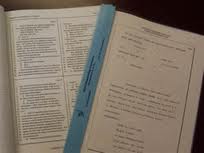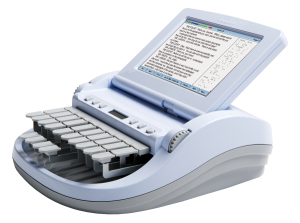 Scheduling legal depositions can be time consuming for you and your staff. Finding an available court reporter can be a chore, especially if your deposition is out of town and you don’t know any court reporters there.
Scheduling legal depositions can be time consuming for you and your staff. Finding an available court reporter can be a chore, especially if your deposition is out of town and you don’t know any court reporters there.
Did you know you can delegate your legal deposition scheduling? As the owner of O’Brien and Bails, my goal is handle all of your court reporting needs no matter where your deposition is scheduled.
How can I do that? First, we are a large firm with several offices around the state of Michigan, so chances are good that we already have a reporter available in the area. If we do not, I network with quality court reporting firms all over the state and country. When you call with an out-of-town court reporter request, my staff can make the necessary calls to find a court reporter for you, no matter where your deposition is taking place.
What are the advantages of delegating your legal deposition scheduling?
Delegating Legal Deposition Scheduling Saves Time and Money
Delegating saves your staff time and resources. Your staff members are already busy with the work that is critical to your law firm. Calling around to find court reporters uses precious time where they could be working on more important tasks. By delegating your deposition scheduling, you can keep your staff working on critical work that contributes to the effectiveness of your law firm.
No Additional Cost to Delegating Your Deposition Scheduling With Us
The service won’t cost you extra. At O’Brien and Bails, we do not charge you for this service. Like many larger agencies, we are happy to help you find an out-of-town court reporter. Because we have so many reporters around the state, we often will be able to place an O’Brien and Bails reporter on the job, so we want to encourage you to call us every time for depositions.
In the event that we do need to find a court reporter, we work with quality court reporters who like to receive our referrals and send us referrals from time to time as well. This creates a win-win situation. Our network of reporters wins by receiving referral work from us. We win by receiving referrals back from our network of reporters. You win by receiving services from quality and highly experienced court reporters no matter where in the state or country you need to schedule a deposition.
Access to High Quality Out-of-Town Court Reporters
Receive a highly experienced reporter even when you’re taking depositions out of town. When we arrange court reporters for you in other cities and states, we make sure you receive a top-notch court reporter. Our networks are made up of only court reporters we have screened and found to be the best. This is important to us because we know you rely on us for quality. We won’t send you anyone we’re not sure is experienced and will produce a good transcript for you.
In this economic climate, we know you need to maximize the efficiency of your staff. By delegating your deposition scheduling to a larger court reporting agency with a wide network, you will save your firm time and increase your profits.
Use the O’Brien & Bails online Deposition Scheduler to request a court reporter anywhere in the country.
 When you hire a court reporter, sometimes you’re working with a stenographic reporter who brings a shorthand machine to take down the record. Sometimes you may get an audio recorder, someone who is using a recording device rather than using a steno machine. Have you ever wondered if one is better than the other?
When you hire a court reporter, sometimes you’re working with a stenographic reporter who brings a shorthand machine to take down the record. Sometimes you may get an audio recorder, someone who is using a recording device rather than using a steno machine. Have you ever wondered if one is better than the other? How long have you been a court reporter?
How long have you been a court reporter? Finding and hiring a good court reporter is essential for an accurate record of a witness’ testimony. Here are a few simple things to take into consideration before you call a court reporter to schedule a deposition.
Finding and hiring a good court reporter is essential for an accurate record of a witness’ testimony. Here are a few simple things to take into consideration before you call a court reporter to schedule a deposition.